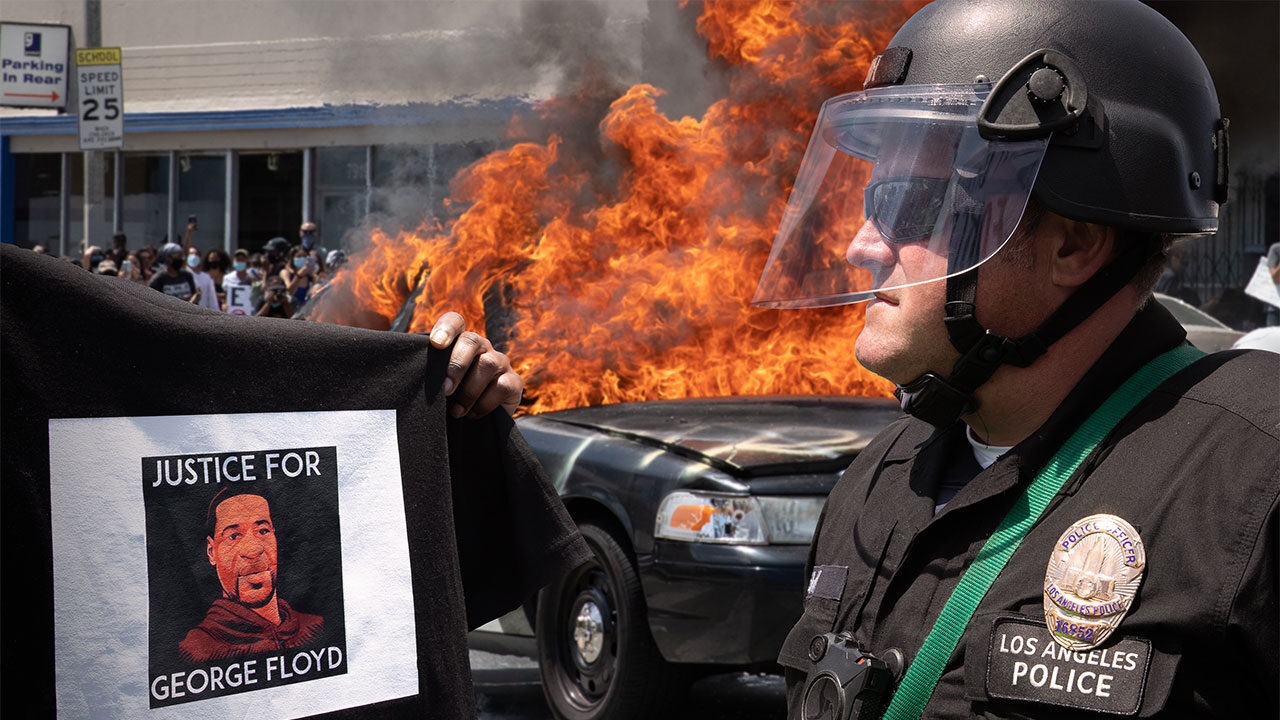
Recently on Don Lemon’s CNN show, he asked me whether the recent protests against police violence and the death of George Floyd represented a watershed moment. In my response, I said that it might be, but history tells us that we have to be diligent. I mentioned a story that comes up at the opening of my book, Uncontrollable Blackness: African American Men and Criminality in Jim Crow New York, where an African American man is shot in the back by a White police officer on the streets of New York City in 1904, more than one hundred years ago. In that case, the officer was arrested and convicted of manslaughter in the end; however, the novel conviction of an officer did not change the decades to come.
“We’ve seen this happen many times throughout American history,” I concluded, “and here we are in 2020.” The broader point I was making is that despite what might happen with the officers in the case of George Floyd’s death, what happens afterward will be crucial. If there is a conviction, it will be very important for us to continue a sustainable campaign to reform American policing in some significant ways if this moment is to represent a turning point.
It seems the visual of George Floyd’s asphyxiation jarred many Americans out of their slumber and into a rare position of listening. Those once asleep have been awakened in recent years by the fact that our current president touches on the sensitive nerves of racial politics on a daily basis.
But I am optimistic. Recently we have seen a national and global movement that pushed the boundaries of protest, and carried an ideological heft that is drawn from a tradition of civil rights protest in America. Even George W. Bush, one of our latest law-and-order presidents, made a statement in support of the protests on May 25 acknowledging that African Americans “are harassed and threatened in their own country.”
It seems the visual of George Floyd’s asphyxiation jarred many Americans out of their slumber and into a rare position of listening. Those once asleep have been awakened in recent years by the fact that our current president touches on the sensitive nerves of racial politics on a daily basis. And COVID-19 has forced notoriously individualistic Americans to contemplate our intrinsic connections—linkages that we have become skilled at ignoring but that bind us together in never-ending tandem, whether we acknowledge them or not.
Ultimately, this moment is reminding us of how violent America is. From the violence of a system that maintained human capital in slavery, all the way to the United States leading the world in gun murders and incarceration every year, we have accepted brutality as a mundane part of our lives. We have become too comfortable with bloodletting, including the violence that consumes presumed criminals at the hands of police officers. We accept police violence because we imagine it is the only thing that keeps us safe from hordes of criminals, a rhetorically spun historical myth that is chiseled into the bedrock of our racial makeup. This fable has continued even into the present, mostly because we have failed to grasp as a society that poverty, segregation, unbridled capitalism and individualism, and a draconian system of policing and imprisonment reinforces, and even creates, what we call “criminality.” And as we see more crime, the only solution we look to is more harshness, more policing, and increased incarceration. As I put it in the epilogue of Uncontrollable Blackness, “there is a monster in America’s past and present, one that swallows [African Americans] whole on the streets, in popular culture, in police custody, and in prisons.” If this is to be a turning point, we must confront that beast and deal with the uncomfortable truth of our racial history.
We need to seriously rethink our culture of violence as a society, on every level. We need to hold on to this moment in order to generate some national police reform that will make police officers into peacekeepers, train them to lessen instances of violence, and keep them accountable.
Ultimately, this moment is reminding us of how violent America is. From the violence of a system that maintained human capital in slavery, all the way to the United States leading the world in gun murders and incarceration every year, we have accepted brutality as a mundane part of our lives.
I am also hoping the long, hot summer of 2020 will foster a new understanding of the fact that crime is systemic, not simply individual, and that deep systemic solutions are required to handle all social problems. We will need to continue to push this subject onto the political agenda—first by voting in local and national politics, but also by doing what a lot of people are already doing: protesting, being in the streets and being heard. Putting pressure on the Democratic Party to make these issues a part of their various campaigns and administrative platforms can also be effective, particularly if kept up. We will need to continue to seek legislation to these ends and make it clear that George Floyd’s death was not simply an isolated case of police violence, but a part of a broader cross that has rested on the African American community’s shoulders for far too long. Black people are, and will be, in the streets protesting because they are tired of carrying it.
Editor’s Note: An edited version of this essay appeared in the November 2020 issue of Washington University magazine under the headline “Is This a Watershed Moment in Police Brutality Protest? Why I am Hopeful, and What History Tells Us.”
